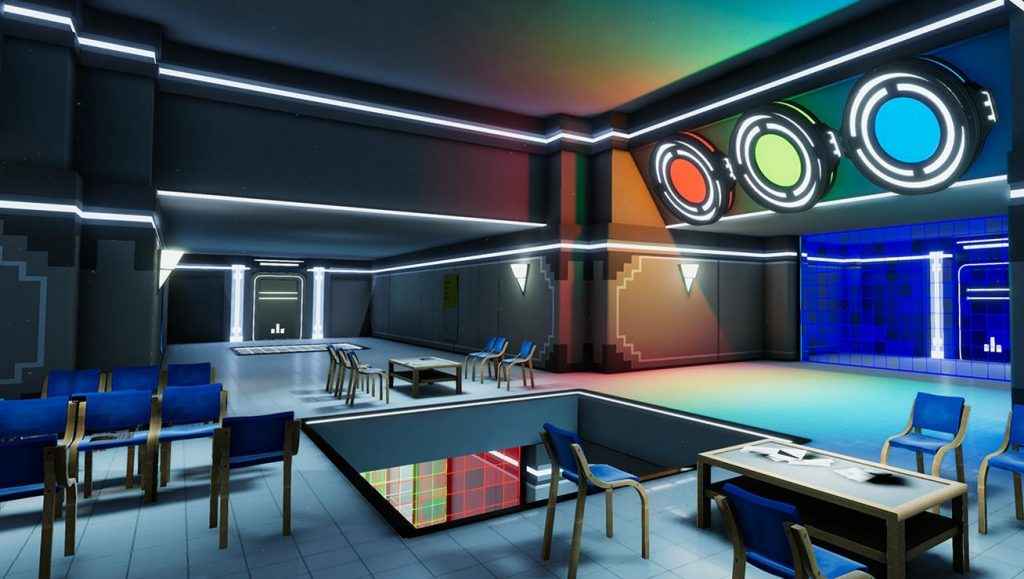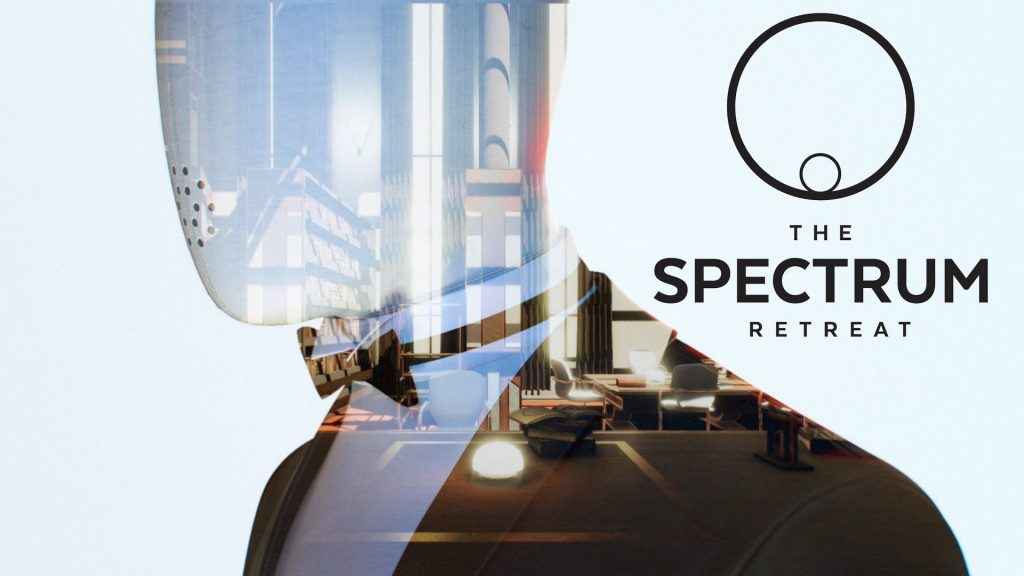Earlier this month PlayStation gamers saw the release of The Spectrum Retreat, a first-person puzzler ensconced within a deep narrative that sees players trying to escape the mysterious Penrose Hotel as they attempt to solve a range of different puzzles and uncover the truth behind their imprisonment.
Naturally with a game as intriguing as that we wanted to interview the brains behind its creation, 20-year old Dan Smith; an individual who won the BAFTA Young Game Design award for his prototype of The Spectrum Retreat back in 2016.
Feel like you’ve underachieved in your life? I know I do now – so to distract yourself from such thoughts why not read what Dan had to say about The Spectrum Retreat eh?
The Spectrum Retreat Interview – Influences and Inspirations
PSU: First off, give us a brief summary of what folks can expect when they get their sweaty paws on The Spectrum Retreat
Sam Smith: The Spectrum Retreat is a challenging, first-person puzzle game set in the near future. You awake at The Penrose hotel, a peaceful yet unsettling refuge from the outside world. It’s manned by mannequin-like staff that won’t let you leave and in order to progress, you have to solve increasingly challenging colour-based puzzles.

PSU: What was the creative impetus for crafting The Spectrum Retreat? Were you influenced by any other games or works from other mediums such as film?
Sam Smith: I take influence from everywhere really. I’m a bit of a film buff, especially where subjective narratives with unreliable narrators are concerned. Memento, Westworld and Black Mirror are three great examples that all share a similar tone. Finding a space for those types of narratives in games is something that really interests me and is what I have tried to do with The Spectrum Retreat. In terms of games that influenced me, Antichamber was probably the biggest inspiration.
PSU: In what way does The Spectrum Retreat meaningfully separate itself from other first-person puzzlers such as The Talos Principle and The Turing Test?
Sam Smith: If you’re a fan of first person puzzle games, there’s a bunch of great puzzles to get stuck into. However, I’ve tried to set it apart with a more involved narrative and a really unique setting. The progression structure is also done in a way I haven’t seen done before in a game, and we spent a lot of time refining how this informs the player as the narrative unfolds.
The Spectrum Retreat Interview – Setting and Puzzles
PSU: The Penrose Hotel is an evocative setting to say the least – what was the thinking behind setting The Spectrum Retreat in this location?
Sam Smith: I wanted the hub world that connects the puzzles to feel very different than the puzzles themselves. The earliest premise I had in my mind was what if the staff wouldn’t acknowledge that you’re a prisoner and how unsettling that would be, without the need for big cutscenes. Just an atmosphere. A hotel is really just ‘storage for people’ when you think about it.
PSU: In terms of sheer duration, how long does The Spectrum Retreat last and how many puzzles can players expect to tackle?
Sam Smith: Most people are getting 4-6 hours on their first playthrough, although there’s narrative value to be found on a second. The exact puzzle count is hard to say, as the puzzles grow in size and contain smaller puzzles as you progress, but it’s up to 10 ‘puzzles’ as the UI defines them per floor across five floors.

PSU: Color-coded puzzles form the crux of the puzzle-solving in The Spectrum Retreat – with that in mind, how are colorblind players catered for?
Sam Smith: We included a range of colour blind settings in-game to make it like it as accessible as possible. There are options for Deuteranopia/Protanopia and Tritanopia and we worked directly with the community to make sure the options were as good as they could be. We were lucky to have support from a group of colourblind players who play-tested the game and provided invaluable feedback.
PSU: Beyond those types of puzzles, are there any other conundrums that players will have to solve in The Spectrum Retreat?
Sam Smith: The hotel space is meant to provide a little break from the hyper logical colour puzzles. Instead, you have to find key codes that have been hidden in plain sight throughout the hotel. They’re easier and more narrative focused experiences, but give you a chance to explore. Hopefully, they’ll help prevent the fatigue that lots of puzzle games can give and scratch a different itch at the same time.
The Spectrum Retreat Interview – Characters and Story
PSU: Amelia Tyler puts in a tremendous performance as Cooper, providing The Spectrum Retreat with an emotional anchor that it might not have had otherwise – what was the thought process surrounding her inclusion in the story when compared to the likes of similar companions in other games such as GlaDOS, for example?
Sam Smith: I knew at some point there had to be interaction with an empathetic character, as everyone else is so cold. The game needed someone to drive you forward and inject emotion beyond the environmental storytelling. I didn’t really have GlaDOS in mind, they’re really different roles to play and GlaDOS filled the void with humour. This was a really hard role because you have all of the player’s attention most of the time, as they’re walking through a corridor, eating breakfast or solving the hotel specific puzzles. It’s deliberately in focus and Amelia really pulled the role of Cooper off fantastically.
PSU: Without giving too much of the plot away – why did you decide on time manipulation as a cornerstone of The Spectrum Retreat’s narrative?
Sam Smith: Exploring time in a subjective way is my single biggest area of interest in creating a narrative and it’s something I’m going to continue to explore. It allows you so much more freedom to tell an impactful story. Whether it’s emotionally or psychologically challenging, it’s just more interesting. In this instance, part of the narrative requires you to be unsure about the passage of time; both before you started and whilst you’re playing. If every day of your life was identical, it might get hard to keep track of how long you’ve been around.
PSU: Is The Spectrum Retreat a self-contained effort, or, can we expect to see more games set within its universe?
Sam Smith: Right now it’s self-contained, although the narrative begins to paint a picture of the bigger world. I’ve nothing concrete planned right now, but who knows what the future holds!
Many thanks to Dan Smith and Plan of Attack PR for facilitating this interview.
If you’re already playing The Spectrum Retreat, you might want to check out our walkthrough for the game.
